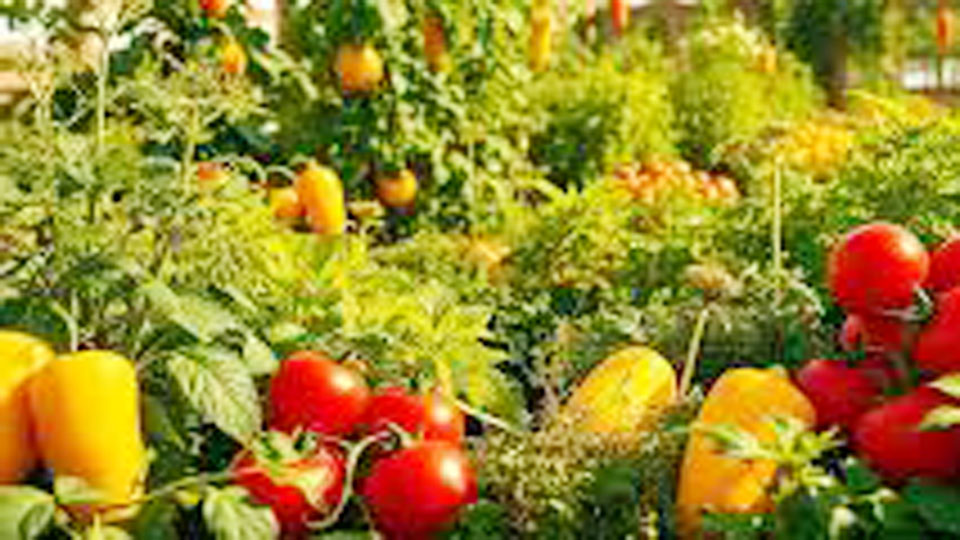When I first started gardening, I was overwhelmed by all the choices I had to make—fertilizers, pest control options, soil amendments, and even which seeds to plant. But as I delved deeper, I realized that organic gardening wasn’t just about growing plants; it was about creating a thriving, sustainable ecosystem in my own backyard. Organic gardening has truly transformed the way I see food, health, and the environment.

Image by eggharvestq
For anyone wondering whether organic gardening is worth the effort, let me assure you—it absolutely is. Whether you’re aiming for healthier produce, reducing your environmental footprint, or simply enjoying a more hands-on connection with nature, organic gardening delivers benefits that go far beyond what you can imagine.
Explore these benefits in detail, so you can see why going organic is one of the best decisions you can make for yourself and your family.
Healthier, Tastier Produce
One of the first things I noticed when I switched to organic gardening was how much better my fruits and vegetables tasted. The flavors were richer, and I felt good knowing that what I was eating was free of harmful chemicals.
Why Organic Produce Is Healthier
No Chemical Residues: Organic produce is grown without synthetic pesticides or fertilizers. This means you’re not ingesting any potentially harmful residues.
Nutrient-Rich Soil: Organic gardening focuses on building healthy soil, which leads to nutrient-dense plants. Studies show that organic fruits and vegetables often have higher levels of vitamins and antioxidants.
Enhanced Taste
When fruits and vegetables are allowed to grow naturally without chemical interventions, their flavor profiles develop fully. You’ll taste the difference in every bite—it’s like rediscovering how produce is supposed to taste.
Safer for You and Your Family
As someone who loves spending time in the garden with family, safety is a big priority. Using chemical-free methods ensures that children, pets, and even wildlife aren’t exposed to harmful substances.
Protecting Vulnerable Groups
Kids and Pets: Both are more sensitive to chemicals. Organic gardening creates a safer environment for them to explore.
Gardeners: Even for us, handling chemical pesticides and fertilizers comes with risks. Organic practices eliminate that concern.
Environmental Benefits
One of the main reasons I embraced organic gardening was its positive impact on the environment. Every small step we take to protect our planet counts, and organic gardening is a big one.
Soil Health
- Prevention of Soil Degradation: Chemical fertilizers deplete soil over time, while organic practices enrich it.
- Earthworm Activity: Organic gardens encourage earthworms, which aerate the soil and contribute to its fertility.
Water Conservation and Protection
Chemical runoff from conventional gardens can pollute water sources. Organic gardening eliminates this risk, and practices like mulching and composting help retain soil moisture, reducing water usage.
Cost Savings
Initially, I thought organic gardening might be expensive. But over time, I realized that it’s actually cost-effective. You don’t need to buy chemical fertilizers, pesticides, or even as much store-bought produce.
Long-Term Savings
- Composting: Kitchen scraps and yard waste turn into free, nutrient-rich compost.
- Seed Saving: Organic gardening often encourages saving seeds from your plants for next season, reducing costs further.
Cost Comparison
| Expense | Conventional Gardening | Organic Gardening |
|---|---|---|
| Fertilizers | $50-$100/year | $0 (composting) |
| Pesticides | $40-$80/year | $0 (natural remedies) |
| Produce Savings | Minimal | Significant |
Encourages Biodiversity
I’ve always been fascinated by the variety of life in my garden. Organic gardening nurtures not just plants but also the entire ecosystem around them.
Pollinators and Beneficial Insects
- Bees and Butterflies: Organic gardens attract pollinators, which are essential for many crops.
- Natural Pest Control: Ladybugs, spiders, and other beneficial insects help keep harmful pests in check.
Diverse Plant Life
Organic gardens often include companion planting, where different plants are grown together to support each other. This diversity keeps pests at bay and improves soil health.
Reduces Carbon Footprint
Growing your food organically cuts down on the environmental impact associated with store-bought produce. Think about the energy used in transportation, packaging, and storage—organic gardening eliminates these.
Sustainable Practices
- No Synthetic Inputs: Organic gardening avoids petroleum-based fertilizers and pesticides.
- Local Produce: Growing at home reduces the need for food to be transported long distances.
Improves Mental Health
There’s something incredibly therapeutic about spending time in an organic garden. It’s not just about the plants—it’s about the peace and satisfaction that comes with nurturing life.
Stress Relief
Studies show that gardening reduces stress and promotes mindfulness. Organic gardening adds an extra layer of fulfillment, knowing that you’re contributing to a healthier environment.
Physical Activity
Gardening keeps you moving—digging, planting, and weeding are all great forms of exercise. Plus, being outdoors gives you a healthy dose of Vitamin D.
Teaches Life Skills
Organic gardening has taught me patience, problem-solving, and a deeper appreciation for nature. It’s a skill you can pass down to your children, teaching them about sustainability and responsibility.
Easy to Start
If you’re wondering whether organic gardening is too complicated, let me assure you—it’s easier than it seems. Start small with a few pots or a raised bed. Use compost for soil and focus on plants that thrive in your climate.
Conclusion
Organic gardening isn’t just a way to grow food—it’s a lifestyle choice that benefits your health, the environment, and your wallet. From tastier, healthier produce to a safer, more sustainable garden, the advantages are endless.
When I walk through my garden, knowing that every plant is grown naturally and responsibly, I feel a sense of pride and peace. It’s a decision that has enriched my life in more ways than I can count, and I truly believe it can do the same for you.
So why not give organic gardening a try? Start small, learn as you go, and enjoy the countless rewards that come with it.
FAQ
What makes organic gardening different from conventional gardening?
Organic gardening avoids synthetic chemicals and focuses on natural methods like composting, crop rotation, and biological pest control.
Is organic gardening more expensive?
Not necessarily. While the initial setup may seem costly, organic gardening saves money in the long run through practices like composting and seed saving.
Can I do organic gardening in a small space?
Absolutely! Organic gardening can be done in containers, on balconies, or even in small raised beds.
How do I control pests in an organic garden?
Use natural methods like introducing beneficial insects, applying homemade sprays, or practicing companion planting.
What plants are best for beginners in organic gardening?
Start with easy-to-grow plants like lettuce, tomatoes, herbs, and radishes. These are low-maintenance and rewarding for new gardeners.

I’m Marissa Lynn, the proud author behind GardeningProperty.com! With a deep-rooted passion for all things green and growing, I’ve dedicated years to mastering the art and science of gardening.
From nurturing vibrant flowerbeds to cultivating thriving vegetable gardens, I love sharing practical tips, creative ideas, and proven techniques to help others create their dream outdoor spaces.